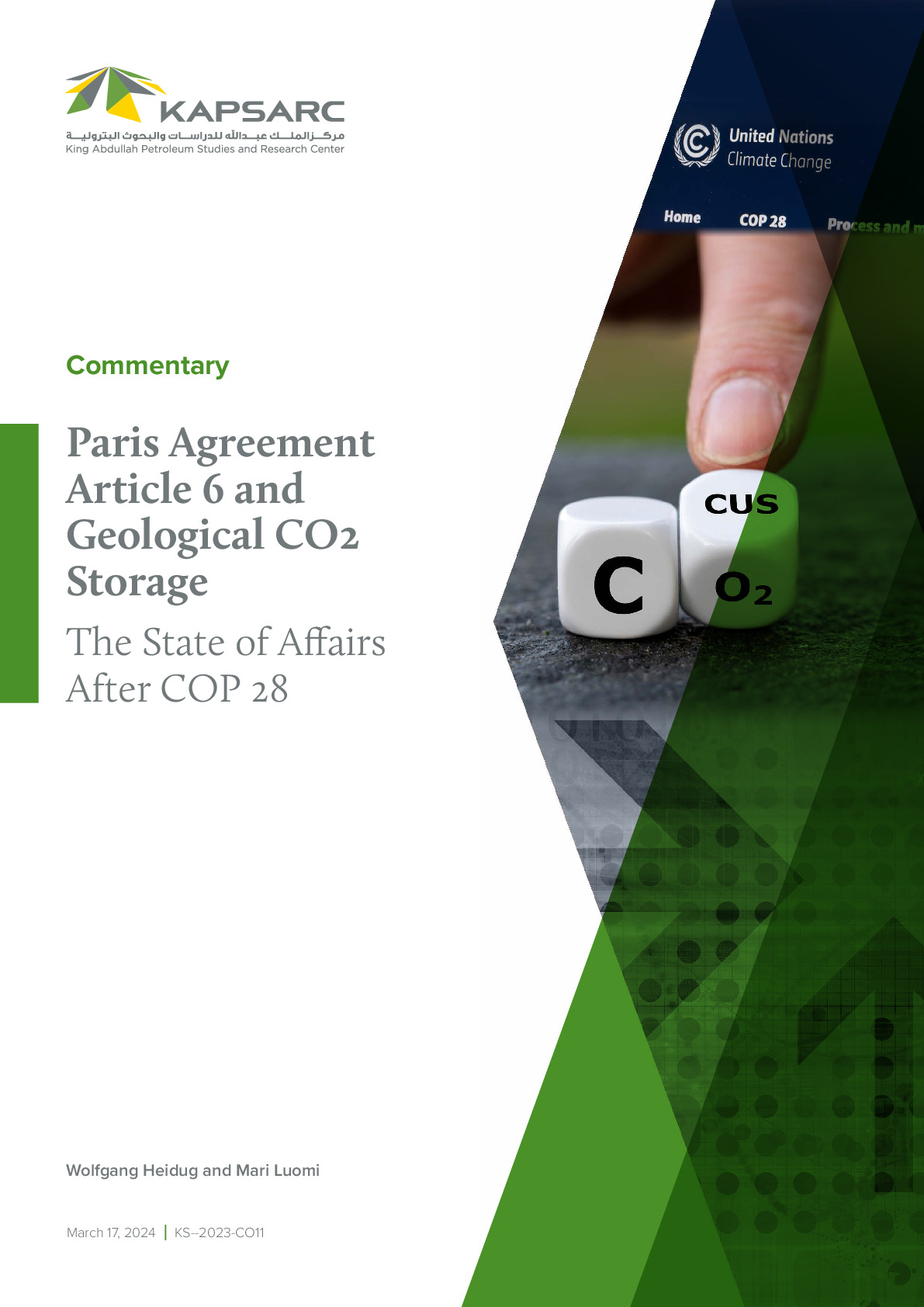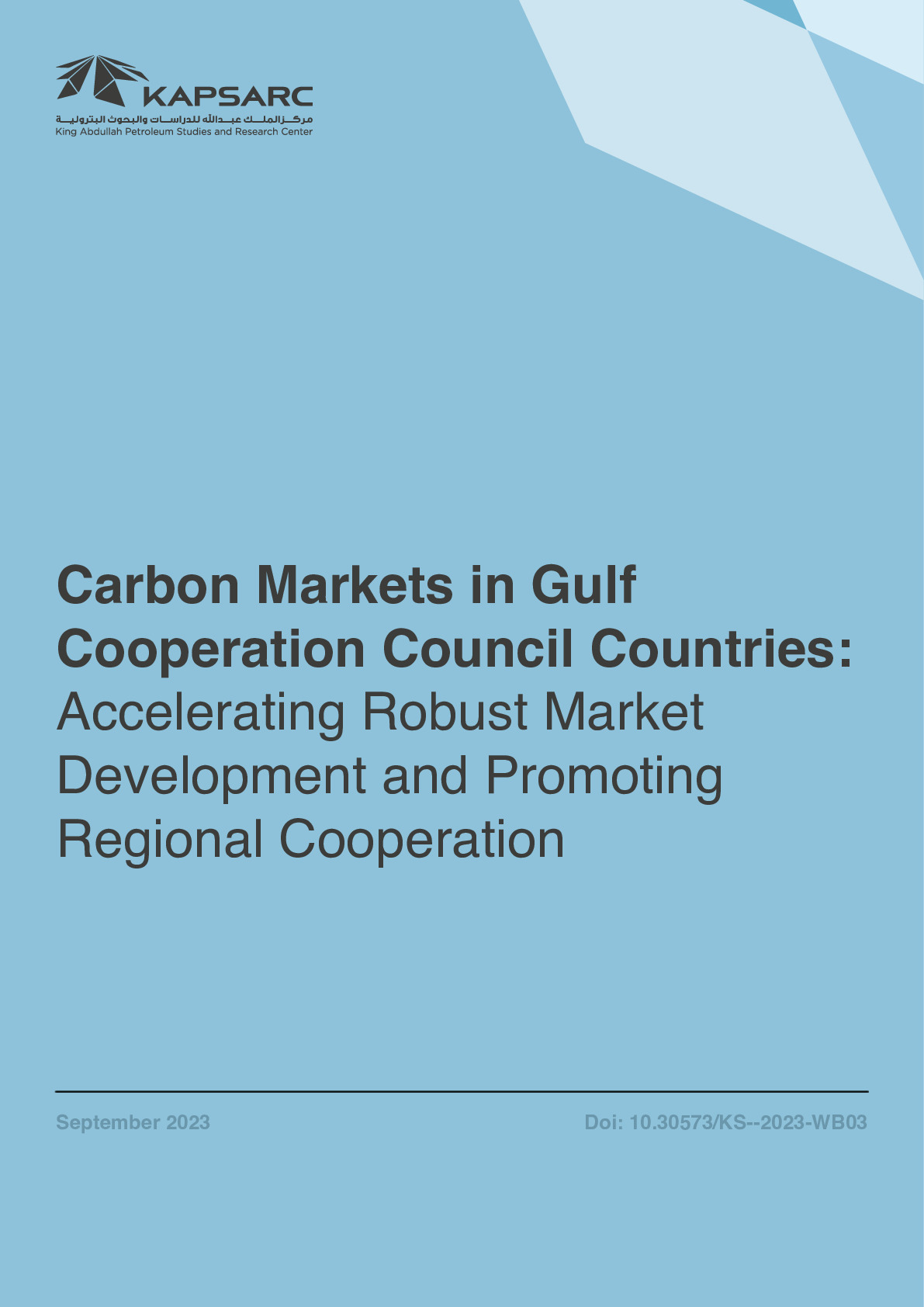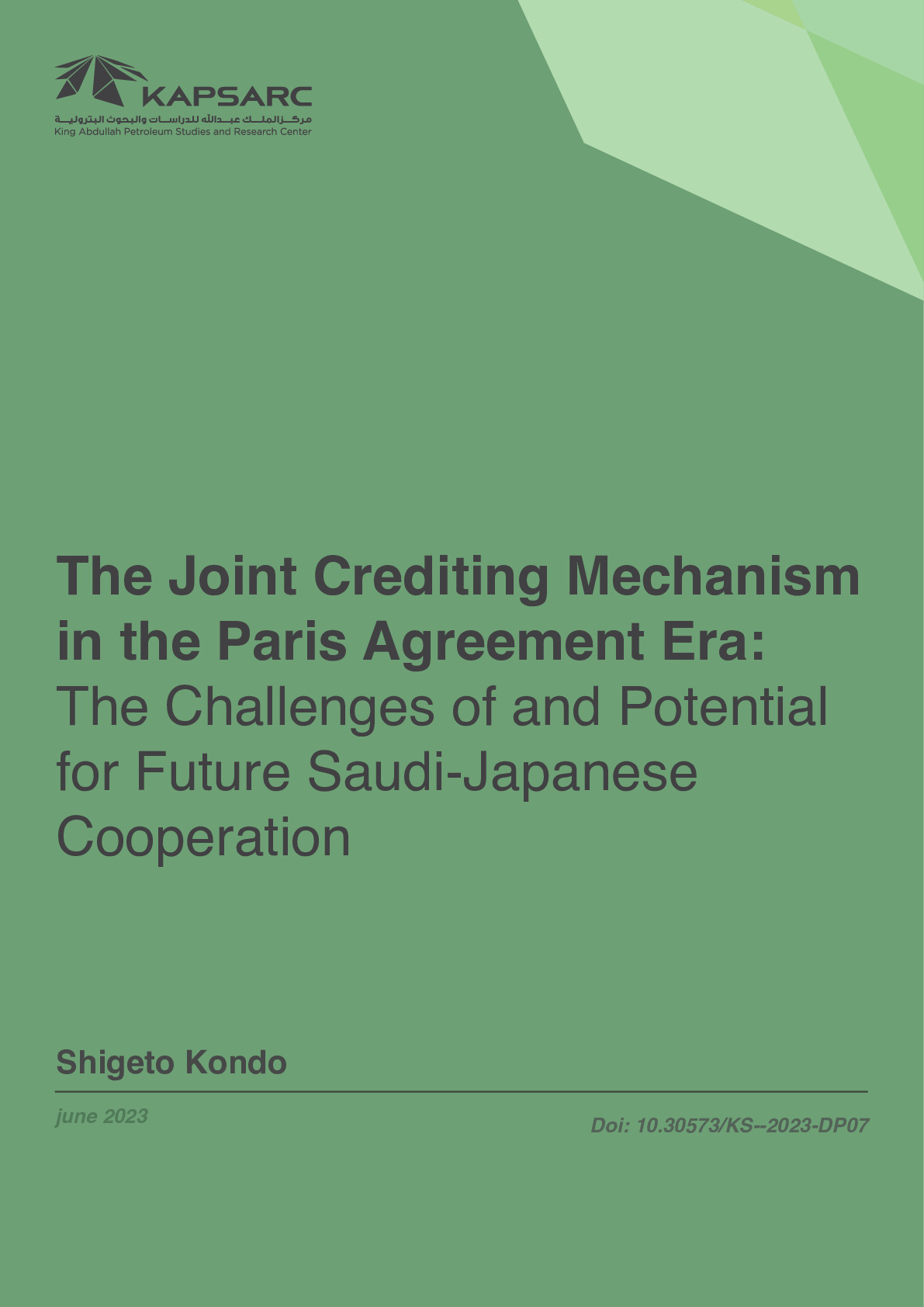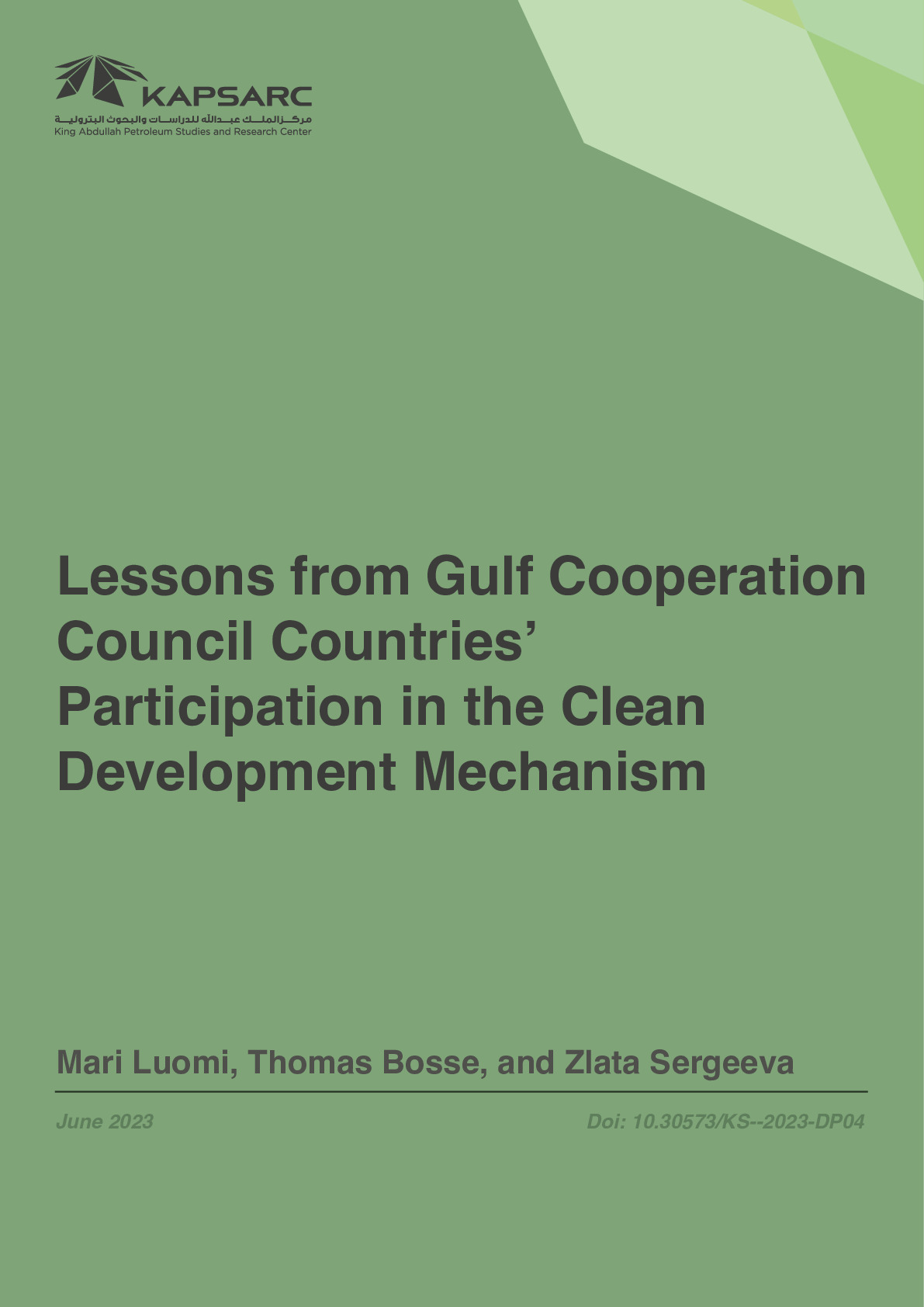This project aims to support Saudi Arabia’s participation in, and engagement with, domestic and international carbon markets. It seeks to contribute to increasing awareness and strengthening understanding of carbon markets in Saudi Arabia and the broader Gulf Cooperation Council (GCC) region through empirical, evidence-based, policy-oriented research and analysis.
Carbon markets can support both private sector and governments’ efforts to reduce – avoid or remove – greenhouse gas (GHG) emissions and contribute to reaching the goals of the Paris Agreement in an effective way while providing various benefits to multiple stakeholders. Among other things, well-functioning carbon markets can lower the costs of GHG emissions reductions, support the transfer of clean technologies and finance, and unlock higher mitigation ambition over time.
Interest in both compliance and voluntary carbon markets is rising rapidly worldwide. Many countries in the Gulf region, including Saudi Arabia, have expressed in their Paris Agreement nationally determined contributions (NDCs) an interest in participating in voluntary international carbon market cooperation under Article 6 of the agreement. Leveraging the full potential of international carbon markets will require establishing new, and considerably strengthening existing, domestic institutional mechanisms, processes, and capacity. It will also require a robust understanding of related options, risks, and opportunities.
In parallel, with a growing number of companies adopting net-zero emission targets, the demand for offset credits is expected to rise significantly in the coming years. Article 6 interacts with, and influences, both compliance and voluntary carbon markets and related mechanisms worldwide. Alignment with Article 6 rules and quality criteria is currently seen as crucial for ensuring the credibility of credits issued.








